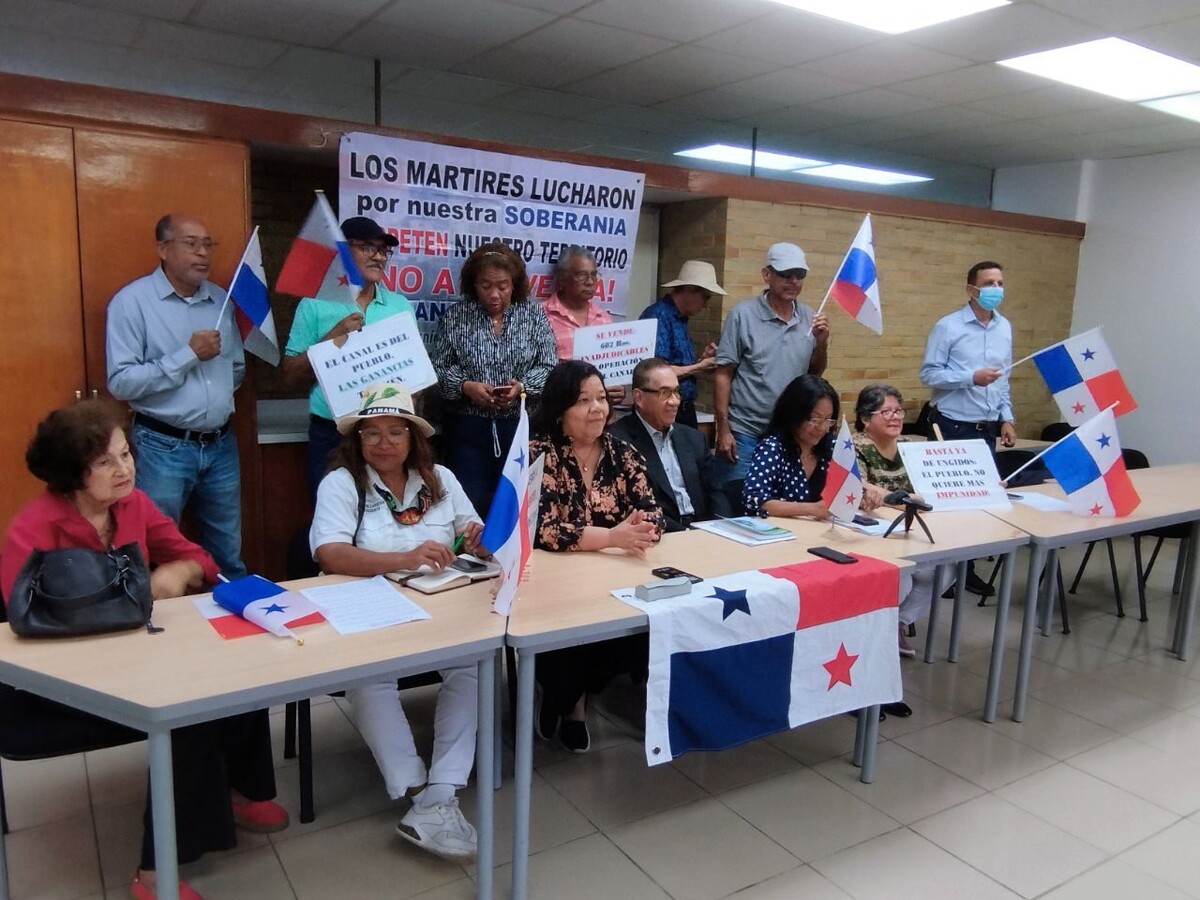
The Association of Communities of the Canal Area (ACAC), the Pro Rescue Movement of the Canal, and Panamanian social organizations expressed their rejection of the designation of three representatives of the wealthy class on the Board of Directors of the Panama Canal. Instead, they demanded that patriots hold these positions of high technical responsibility.
At a press conference held this Tuesday, the president of ACAC, Aida Torres, proposed the names of economists Maribel Gordón, Juan Jované, and Felipe Argote, as well as jurist José Dídimo Escobar, to take on the positions on the Canal Board that will become available in 2025. Torres highlighted that these figures from popular backgrounds, with histories of defending national sovereignty, are qualified to perform their duties with integrity.
In a statement read during the conference, it was emphasized the need to respect the memory and legacy of the heroes of the sovereign struggle, and the proposal of the government to lead the Panama Canal Authority (ACP) was rejected. The imbalance that the presence of business sector representatives on the Board of Directors would cause was criticized, recalling that Panama assumed administration of the canal in 1999 according to the Torrijos-Carter Treaties of 1977.
The signers of the statement expressed their disapproval of the designation of Diego Herrera Dutari, Domingo Latorraca, Durán, and Enrique Vallarino Miranda, all from the business sector and members of the Chamber of Commerce, to occupy positions on the Canal Board. It was pointed out that these appointees lack the necessary experience for such roles.
Emphasizing the importance of having patriotic and upright members on the Canal Board, the statement urged the selection of individuals capable of effectively managing the Canal and representing the best interests of social sectors and the country. Additionally, the dedication of Canal workers was recognized, although the increase in salaries and allowances of the Board of Directors was criticized as shameful and generating discontent.












